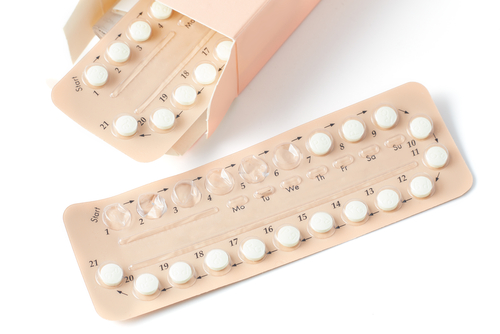Long-term daily treatment with Visanne (dienogest) can benefit women with endometriosis, improving their quality of life and sexual life, a study shows.
The study, “Effects of long-term treatment with Dienogest on the quality of life and sexual function of women affected by endometriosis-associated pelvic pain,” was published in the Journal of Pain Research.
Endometriosis is characterized by the overgrowth of endometriotic tissue and its expansion outside the uterus, which can affect the ovaries and surrounding organs.
These endometrium-like lesions are active and can produce estrogen. This will lead to excessive levels of the hormone, which in turn can contribute to the symptoms of endometriosis.
To reverse estrogen overproduction, women are treated with hormonal contraceptives, GnRH receptor agonists, aromatase inhibitors, or hormone-embedded intrauterine devices.
These strategies are not a cure and can only help manage endometriosis. Although they can be beneficial, they might not be sufficient to help reduce the pelvic pain that can severely affect a patient’s quality of life.
Researchers at Italy’s University of Catania evaluated the long-term efficacy of Visanne to help manage the symptoms of endometriosis.
Marketed by Bayer, Visanne is a synthetic progestin (a form of the female sex hormone progesterone) currently used in clinical practice for the treatment of endometriosis.
This molecule has shown to have a direct anti-proliferative effect, and is able to reduce immunologic activities and prevent the formation of new blood vessels by binding to progesterone receptor in the endometriotic tissue.
The study enrolled 54 women with endometriosis who were taking 2 mg of Visanne daily and 38 age-matched women who refused to take Visanne but were receiving on-demand therapy with non-steroidal anti-inflammatory drugs (NSAIDs).
The participants were followed for two years; 79.6% of those taking Visanne completed the study. The rest discontinued treatment because of spotting or to plan a pregnancy.
Evaluation of pelvic pain progression during the study revealed that women treated with Visanne experienced significant improvements in pelvic pain scores from the third month of treatment compared with before and with the NSAIDs group. This became even more pronounced from month six to 24.
In contrast, those who were only taking NSAIDs showed no signs of reduced pelvic pain over the study duration.
Treatment with Visanne also showed a positive effect on menstrual cramps (dysmenorrhea), showing gradual improvement and achieving a reduction of about 95.5% by the end of the study. A similar trend was reported for painful sexual intercourse (dyspareunia), with a reduction of 74.4% at month 24.
In addition, women treated with Visanne reported significant improvements in several aspects of their lives after three months of treatment, including physical function, physical role, body pain, general health, social function, emotional status, and sexual function.
Overall, the participants reported to have increased their monthly frequency of sexual activity from a mean of 2.1 to 5.4 by the end of the study. Also, 37.2% stated that they were satisfied with the pain relief effect of Visanne, while 62.8% were very satisfied.
Supported by these results, the team believes that Visanne may represent “a promising medication for the long-term management of endometriosis.”
“The current study contributes to enrich literature about the advantages of using [Visanne] in a long term to treat endometriosis-related pelvic pain, improving also quality of life and sexual function,” they stated.

